18 Fantastic Animals That Live Next to Us and Could Disappear Forever
Categories: Animals | Ecology | Nature
By Pictolic https://pictolic.com/article/18-fantastic-animals-that-live-next-to-us-and-could-disappear-forever.htmlThe Earth is home not only to us humans, but also to thousands of other species of living creatures – big and small, predatory and friendly, colorful and not so. However, each of these species is unique, and its preservation on our planet is very important for the natural balance.
Unfortunately, humans are the main reason for the extinction of many animals. Okapi and quokka, loris and dugong, kakapo and palm thief – these and other species of animals are on the verge of extinction and may soon disappear forever. Let's be kinder to nature and those with whom we share our home!
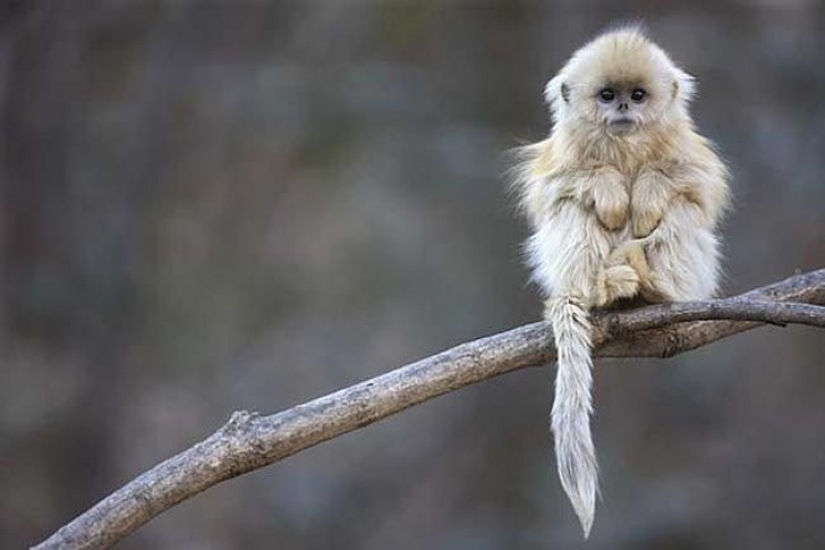
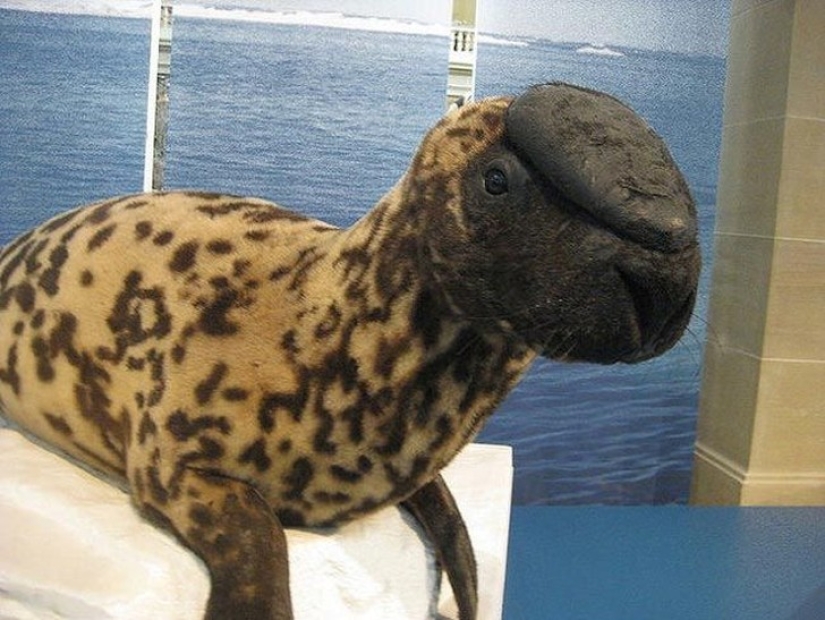 Crested seal
Crested seal
Hooded seals are found only in isolated, remote areas of the North Atlantic. These seals are known for their unique nasal cavity on the top of their heads, which they deflate and inflate when swimming, and when they feel threatened.
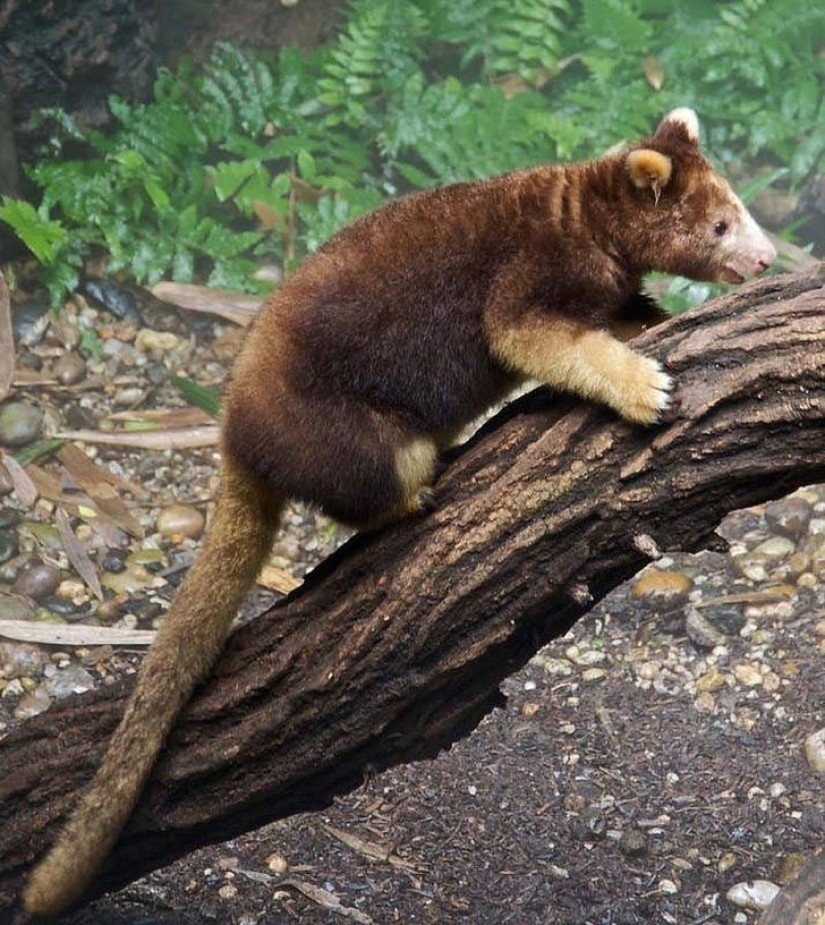 Tree Kangaroos
Tree Kangaroos
These marsupials live in the rainforests of New Guinea and Queensland, Australia, and, as their name suggests, are members of the tree-dwelling kangaroo family. Hunting and deforestation have reduced the population of these amazing creatures to 1%.
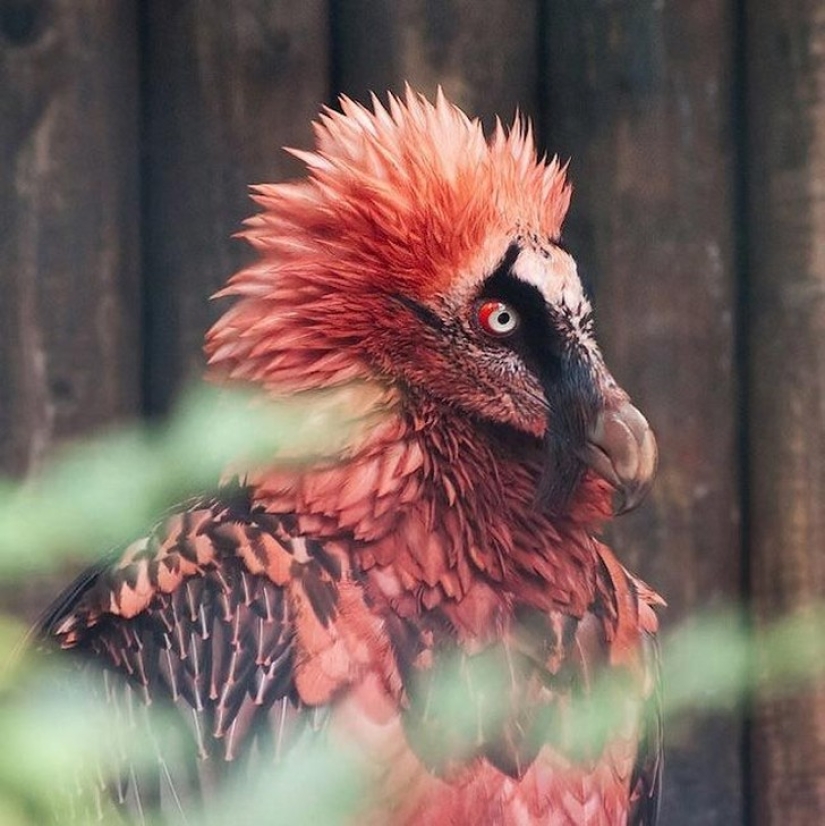 Bearded Man
Bearded Man
These beautiful birds from the hawk family live in the Himalayas and other mountainous regions of Europe, Asia and Africa. In Russia, they are found in the Caucasus and occasionally in the Altai and Sayan Mountains. The bearded vulture is rare everywhere due to persecution by humans. These birds were almost completely exterminated in the last century, it was believed that they attacked sheep and children. However, this is not true, since the bearded vulture does not hunt live prey, but feeds on carrion. Currently, the World Wildlife Fund believes that there are only 10 thousand bearded vultures left in the wild.
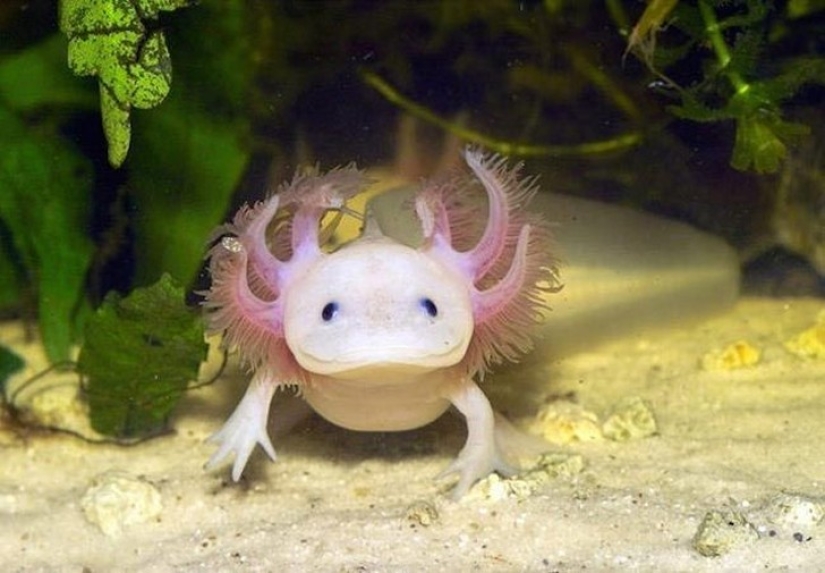 Axolotl
Axolotl
Also known as the Mexican salamander, these small amphibians live in lakes in Central America. In 2010, these strange creatures were on the verge of extinction, and according to a 2013 study, scientists have not been able to find them in the wild.
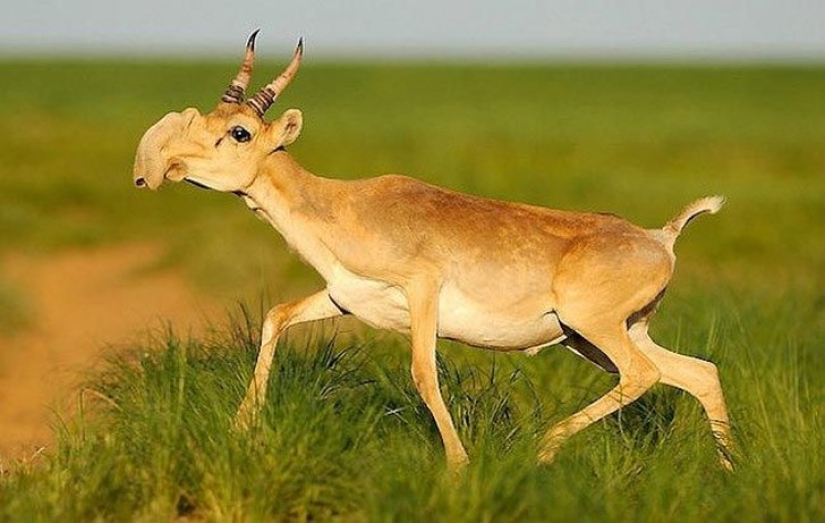 Saiga
Saiga
The saiga is native to the Eurasian steppe, including Dzungaria and Mongolia. This incredible, alien-looking creature has a strange, extremely flexible nose that helps it filter out dust kicked up by the herd during migration. Human hunting and habitat loss have left only a few thousand of them left in the wild.
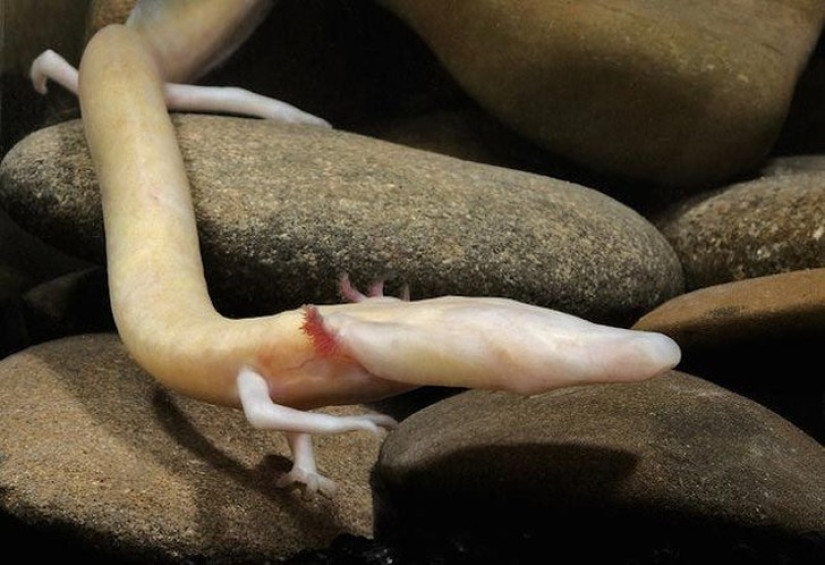 European Proteus
European Proteus
Proteus lives in the caves of Central and South-Eastern Europe and is one of the few amphibians that is completely aquatic. They eat, sleep and grow underwater. Proteus spend their entire lives in complete darkness. They have no eyes, but they have incredible hearing and smell. Water pollution led to their extinction.
 Golden Snub-nosed Monkeys
Golden Snub-nosed Monkeys
These brightly colored primates live mainly in southern and central China, at altitudes of up to 4,000 meters. They are very rare, the species is endangered, and are listed in the Red Book. They are endangered due to deforestation.
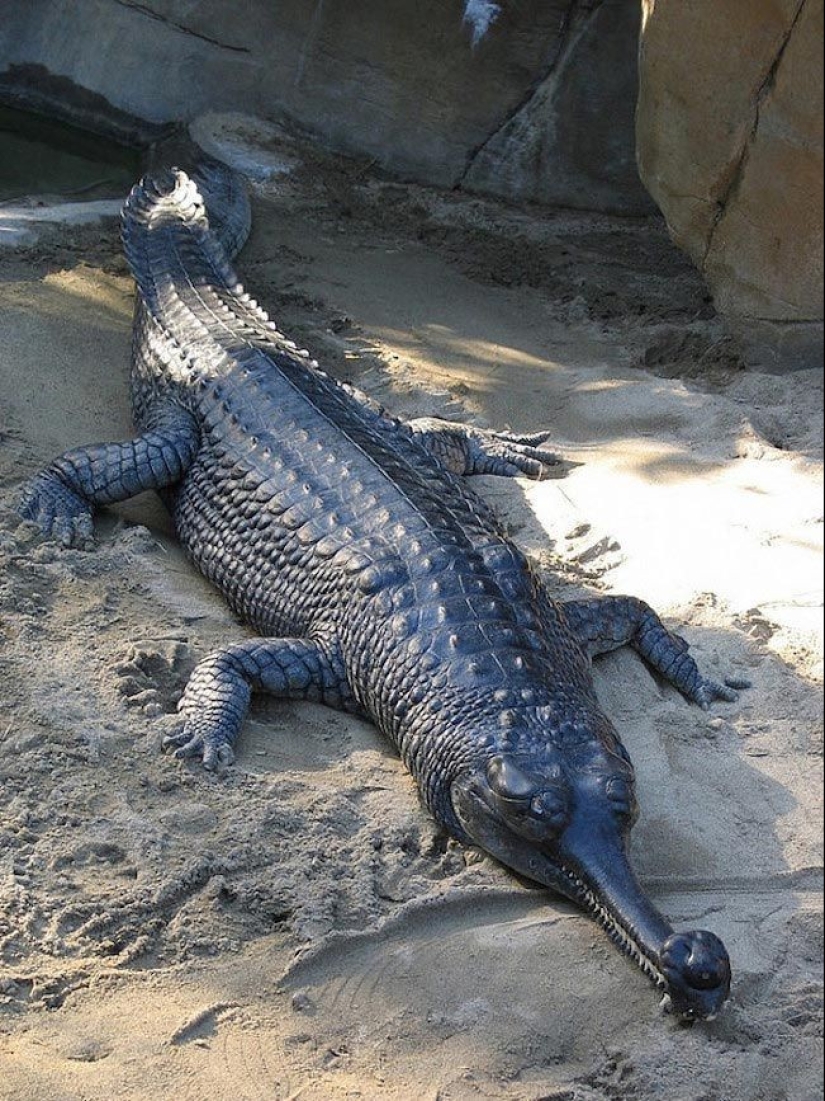 Gangetic gharial
Gangetic gharial
The gharial is unique among modern crocodiles. Although several species existed millions of years ago, today the Gangetic gharial is the last remaining member of this ancient genus and the only species in the gharial family. Their long, thin jaws make them flexible and agile fish hunters. Human predation has reduced their numbers to 2%. There are currently fewer than 235 individuals of this species, most of which are found in India.
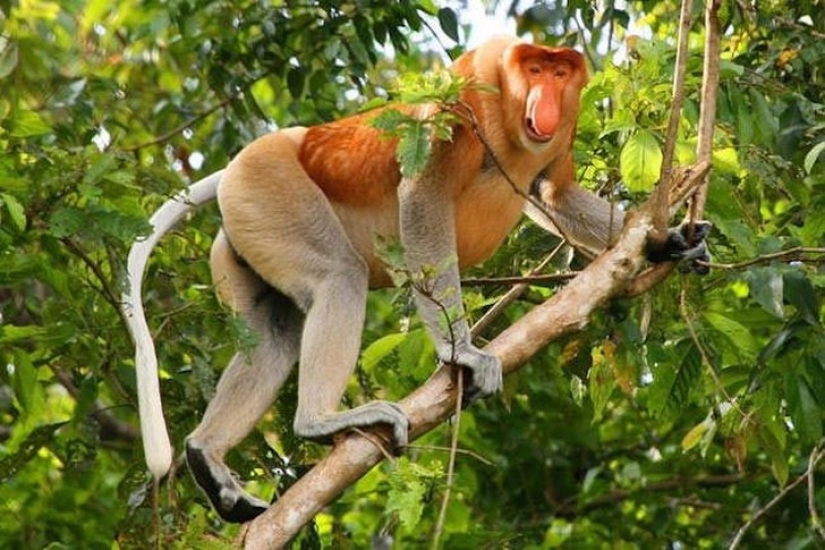 Proboscis monkey
Proboscis monkey
This strange species of monkey, known for its impressive nose, is found only on the island of Borneo. The population of these monkeys has decreased by up to 50% in the last 40 years. Currently, deforestation is the main threat to the proboscis monkey. This species also suffers from hunting, although it is protected by law. According to the International Union for Conservation of Nature, the proboscis monkey is endangered.
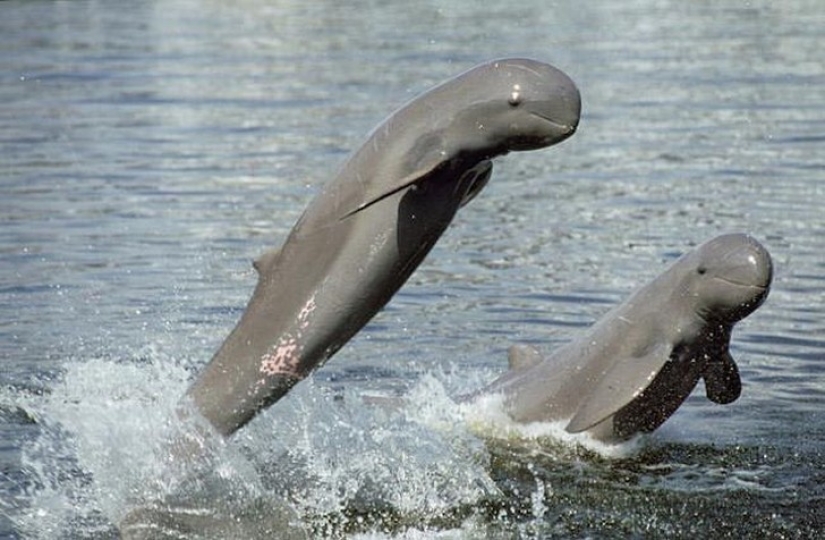 Irrawaddy dolphins
Irrawaddy dolphins
Irrawaddy dolphins are a rare species that live in rivers and coastal regions of South and Southeast Asia. However, in Cambodia and Laos, they are considered sacred animals: fishermen love the Irrawaddy dolphin because it helps them drive fish into their nets. However, recent studies have shown that there are less than a hundred Irrawaddy dolphins left. The reason for the extinction of the species was overfishing and the extremely low survival rate of the young. Old dolphins die, and there is no replacement for them, since only a few young animals reach adulthood.
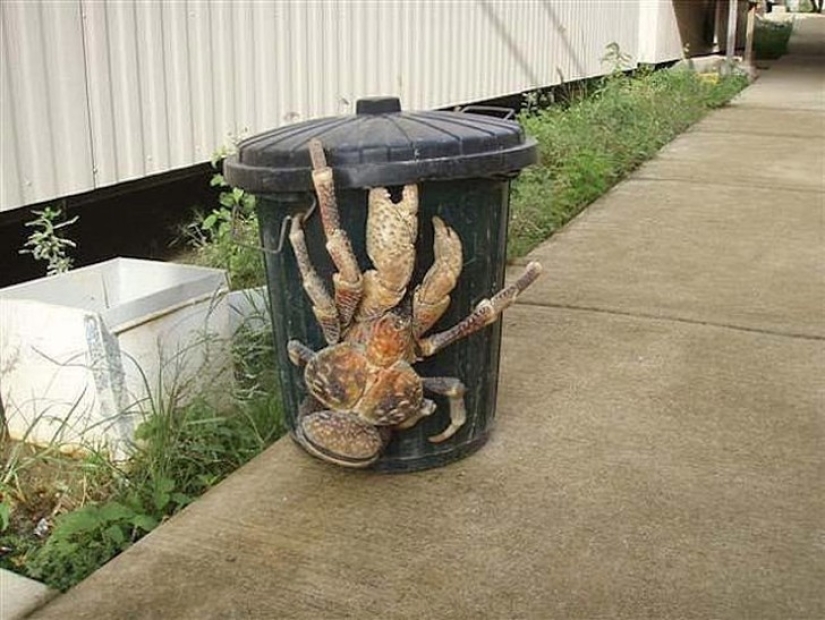 Palm Thief
Palm Thief
The palm thief is the largest arthropod in the world, weighing up to 9 kg. As the name suggests, these crabs climb trees in search of coconuts to crack open with their powerful claws. Because these giants are considered a delicacy, they are endangered and protected in some areas.
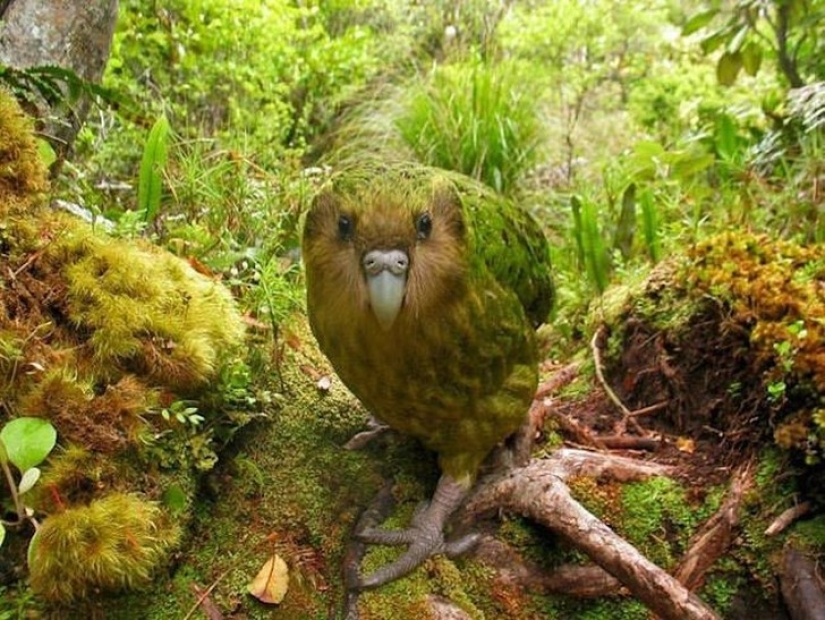 Kakapo
Kakapo
The kakapo, or owl parrot, is native to New Zealand and is the only flightless parrot that is also nocturnal. European colonization of the island brought cats with them, making the kakapo easy prey. These birds are endangered, with only about 130 individuals remaining.
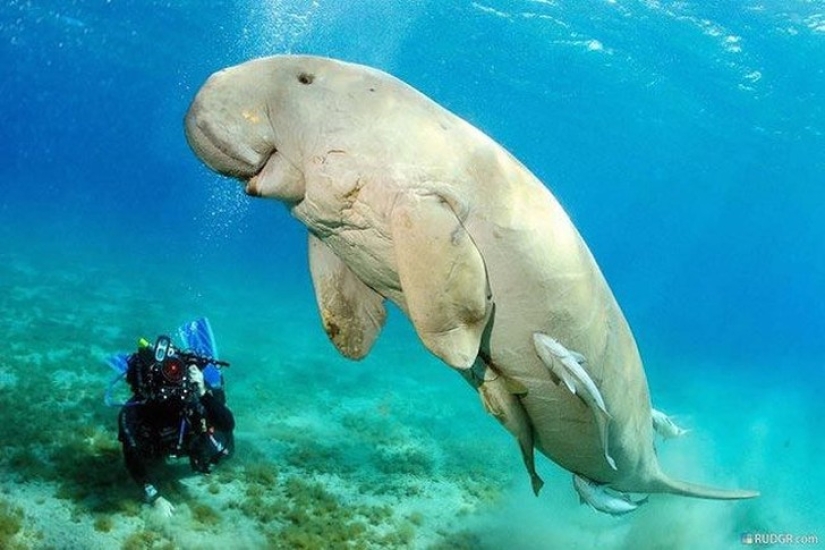 Dugong
Dugong
The dugong is one of four surviving species of sea cows found in the Pacific Ocean off the east coast of Africa. These majestic giants are hunted for their veal-like meat, as well as for their fat, skins, and bones, which are used to make ivory. Due to overfishing and habitat degradation, the dugong has become rare or extinct across much of its range.
Currently, catching dugongs with nets is prohibited and they are caught with harpoons from boats. The catch is permitted as a traditional trade of aboriginal peoples. The dugong is listed in the Red Book of the International Union for Conservation of Nature with the status of "vulnerable species".
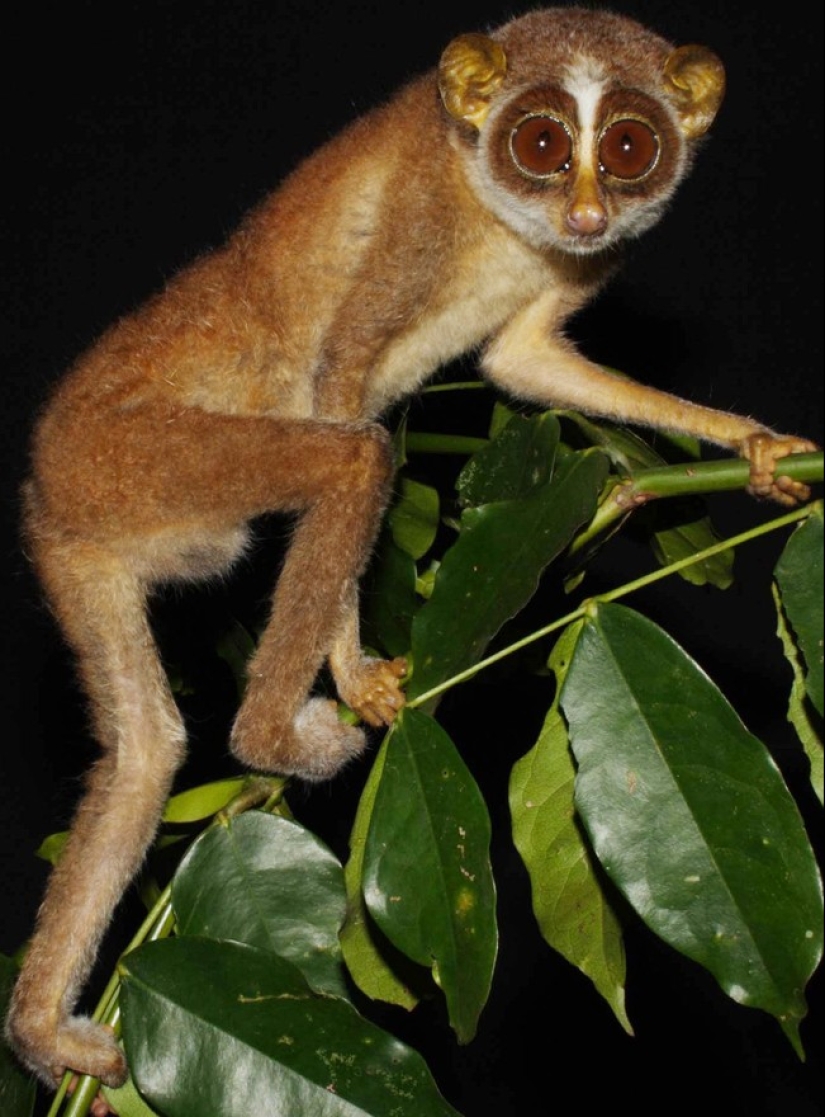 Lori (Loris elusive)
Lori (Loris elusive)
This species of loris has only been spotted four times since 1937 and disappeared between 1939 and 2002. It is believed that they are now extinct.
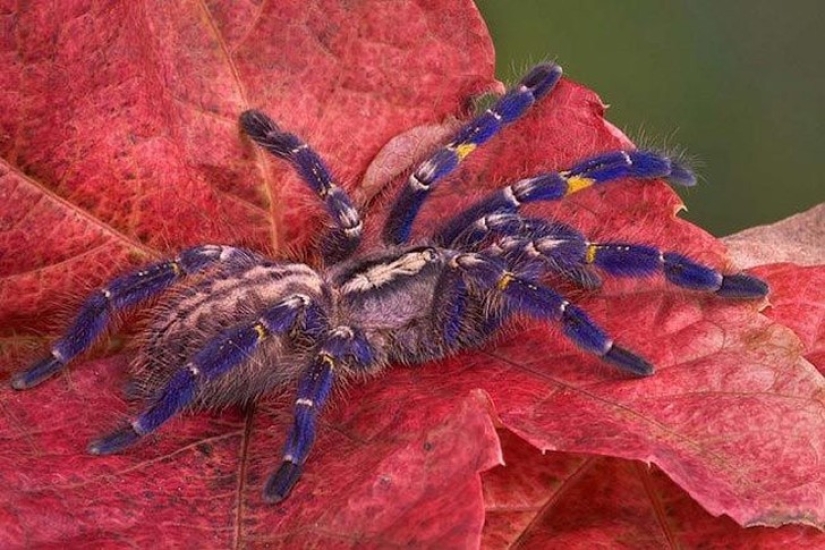 Ornamental Tarantula
Ornamental Tarantula
This species of spider can only be found in remote Indian forests. Collectors ask up to $500 for these beautiful colorful arthropods, and this has led to their numbers declining significantly, leading to the threat of extinction.
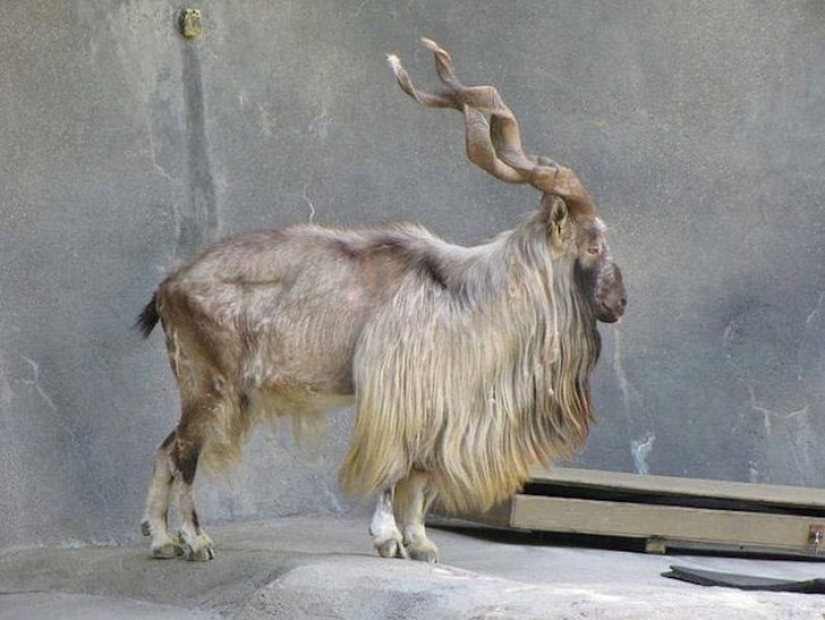 Markhor (markhorn goat)
Markhor (markhorn goat)
The Markhor is the national symbol of Pakistan. Its high status and the beauty of its incredible horns make it an ideal target for hunters looking to get their hands on a rare trophy. Today, there are only about 2,500 left in the wild.
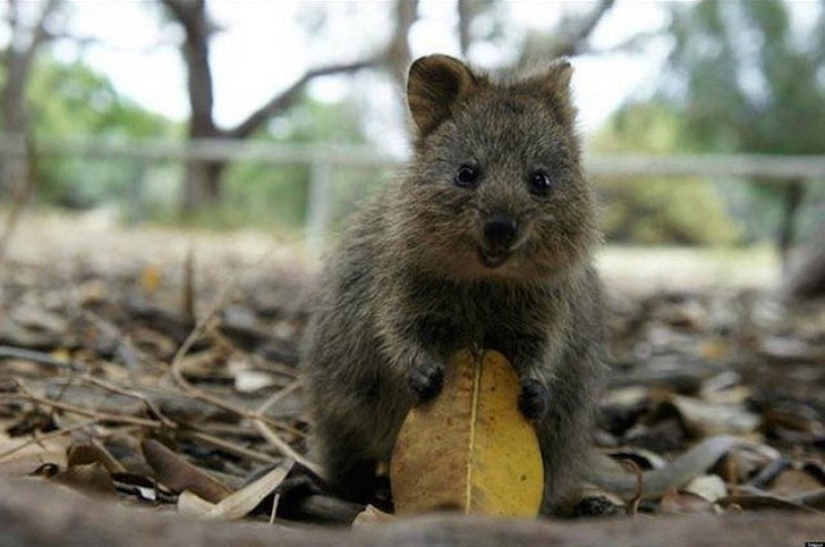 Quokka (short-tailed kangaroo)
Quokka (short-tailed kangaroo)
Quokkas are very friendly marsupials that live in a small corner of southwestern Australia. Their kindness is partly why they are in danger: try as they might, they can't make friends with dingoes and foxes.
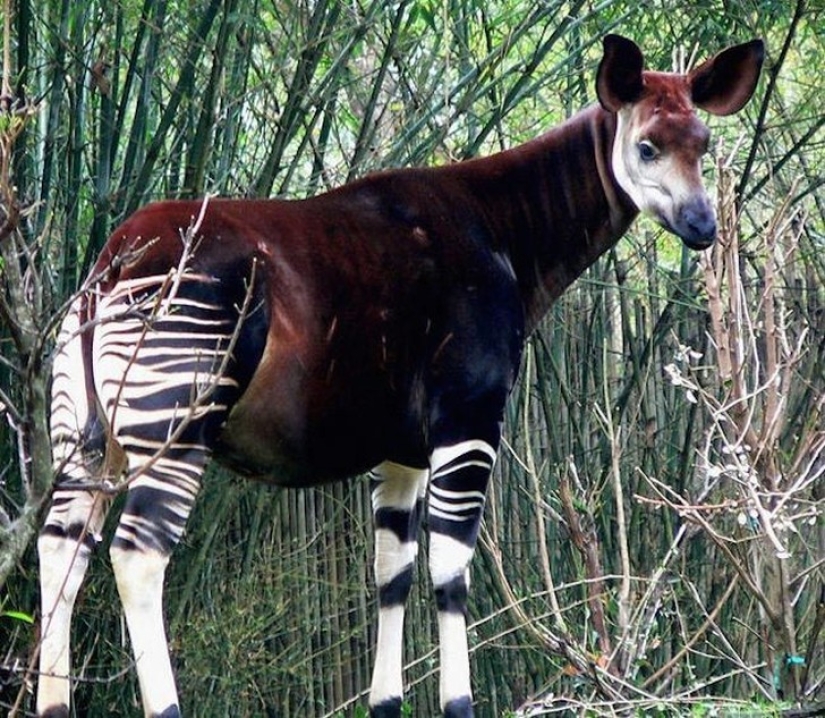 Okapi
Okapi
Also known as the zebra-giraffe, the okapi rose to fame in the 1800s after being discovered by British explorers.
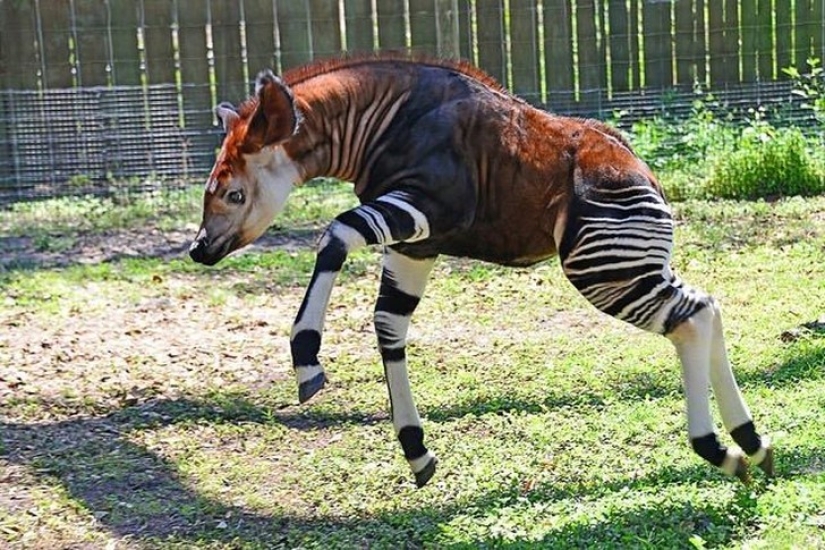 Although the okapi was discovered several centuries ago, few people still believe that this strange creature can be real. Today, you can only find them in the Democratic Republic of Congo, where there are about 10-20 thousand left.
Although the okapi was discovered several centuries ago, few people still believe that this strange creature can be real. Today, you can only find them in the Democratic Republic of Congo, where there are about 10-20 thousand left.
Recent articles

It's high time to admit that this whole hipster idea has gone too far. The concept has become so popular that even restaurants have ...

There is a perception that people only use 10% of their brain potential. But the heroes of our review, apparently, found a way to ...

New Year's is a time to surprise and delight loved ones not only with gifts but also with a unique presentation of the holiday ...